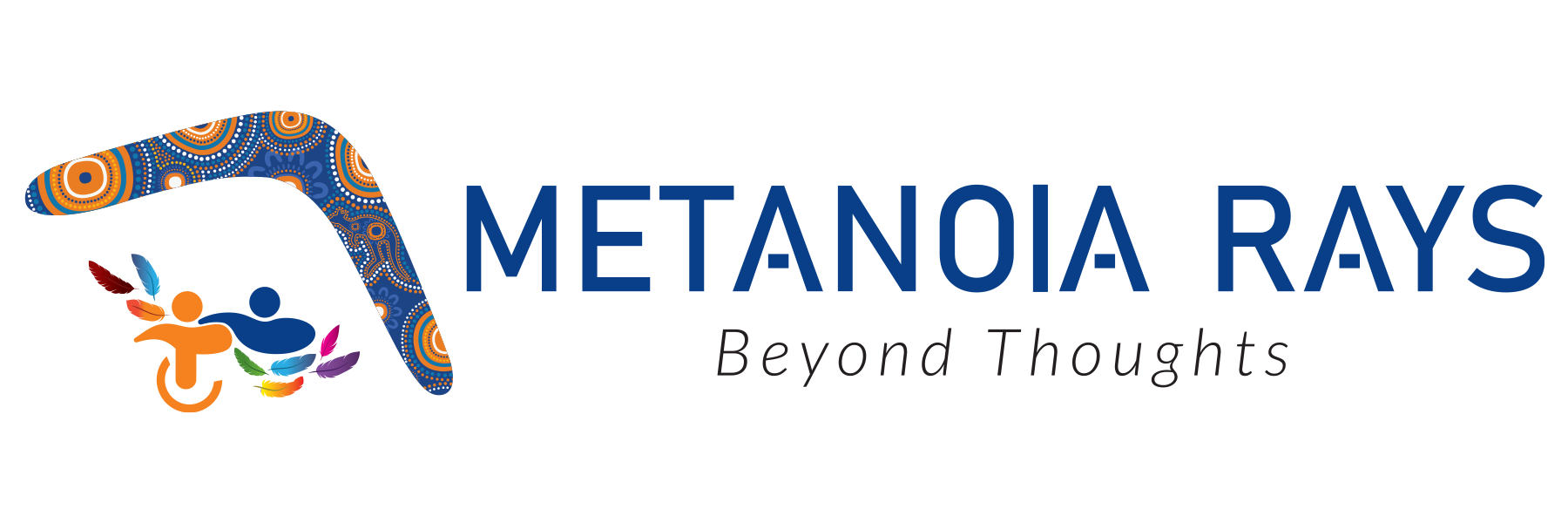
Art at Metanoia Rays
April 15, 2024
Metanoia Rays: Reflecting on an Inspiring 2024
December 2, 2024Understanding Acronyms in the NDIS Sector
Navigating the National Disability Insurance Scheme (NDIS) can be overwhelming, especially with the multitude of acronyms used. To help you better understand the NDIS landscape, we’ve compiled a comprehensive list of commonly used acronyms and their meanings.
Common NDIS Acronyms
A - C
AAT - Administrative Appeals Tribunal: A body that reviews administrative decisions made by Australian Government officials, including NDIS decisions.
ACL - Australian Consumer Law: Legislation that provides consumer protections, applicable to NDIS participants as they purchase goods and services.
ADL - Activities of Daily Living: Everyday tasks such as eating, bathing, and dressing, often supported by NDIS plans.
AT - Assistive Technology: Devices or systems that support people with disabilities to perform tasks they would otherwise find difficult.
CB - Capacity Building: A category of support in NDIS plans aimed at developing skills and independence.
CoS - Coordination of Supports: Assistance in finding providers for the support NDIS participants are funded for to allow individuals to achieve their goals and an independent life.
COAG - Council of Australian Governments: The peak intergovernmental forum in Australia, which oversees major national reforms, including the NDIS.
D - FDSS - Department of Social Services: The Australian Government department responsible for social policies, including the NDIS.
ECEI - Early Childhood Early Intervention: An approach to support children under 9 with developmental delay or disability and their families.
EP - Exercise Physiologist: Health professionals who specialize in exercise prescription for people with chronic conditions or disabilities.
FOI - Freedom of Information: The right to access documents held by the government, including information about NDIS plans and decisions.
G - I
GA - General Access: General community access, including facilities and services that should be accessible to everyone, including those with disabilities.
J - L
LAC - Local Area Coordinator: NDIS representatives who help participants to understand and access the NDIS, and connect with local services and supports.
M - O
NDIA - National Disability Insurance Agency: The organisation responsible for implementing the NDIS.
NDIS - National Disability Insurance Scheme: A government initiative that provides support to Australians with disabilities, their families, and carers.
NGO - Non-Governmental Organisation: Any non-profit, voluntary citizens' group that is organised on a local, national, or international level, including those providing disability services.
OT- Occupational Therapy: is a client-centered health profession that focuses on promoting health and well-being through occupation. The primary goal of occupational therapy is to enable people to participate in the activities of everyday life.
P - R
PCA - Personal Care Assistant: Professionals who assist individuals with daily personal care tasks.
PBS - Positive Behaviour Support: An approach to support people with disabilities who display challenging behaviours, focusing on positive reinforcement.
S - U
S48 - Reassessment of participant's plan on request of participant due to change of circumstances.
S47 - Variation of participant's plan. Change of participant's statement of goals and aspirations.
S100 - A review of a reviewable decision within 3 months or an NDIS internal review
SDA - Specialist Disability Accommodation: Housing designed for people with very high support needs.
SIL - Supported Independent Living: Support provided to NDIS participants to help them live independently.
SLES - School Leaver Employment Supports: Supports for young people transitioning from school to employment or further education.
TSP - Transport Support Program: Funding for NDIS participants to access transport for community, educational, and employment activities.
V - Z
VET - Vocational Education and Training: Education and training programs that provide skills and qualifications for employment, including those tailored for people with disabilities.
YLYC - Your Life Your Choice: A self-directed support program that allows NDIS participants to have more control over their funding and supports.
Understanding these acronyms is crucial for navigating the NDIS and accessing the supports and services you or your loved one need. Keep this guide handy as a reference to demystify the terminology commonly used within the NDIS sector. For a more comprehensive list of acronyms please visit the NDIS website.






